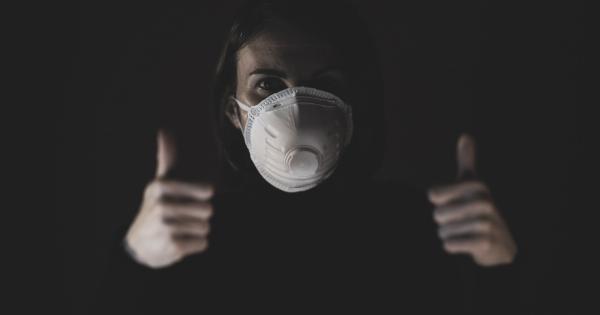Bronchitis is a respiratory condition that affects the bronchial tubes, which are responsible for carrying air to and from the lungs.
It is characterized by inflammation of these air passages, leading to symptoms such as coughing, difficulty breathing, and mucus production. In this comprehensive guide, we will explore the causes, symptoms, and treatment options for bronchitis.
Causes of Bronchitis
Bronchitis is commonly caused by viral infections, such as the common cold or flu. These viruses can spread from person to person through respiratory droplets or by touching contaminated surfaces.
Other less common causes include bacterial infections, exposure to irritants or pollutants, and certain underlying health conditions.
Symptoms of Bronchitis
The symptoms of bronchitis can vary from mild to severe, and may include:.
- Persistent cough
- Production of thick, discolored mucus
- Shortness of breath
- Chest discomfort or tightness
- Wheezing or whistling sound when breathing
- Fatigue and body aches
- Low-grade fever
If you experience these symptoms, it is important to consult a healthcare professional for an accurate diagnosis.
Types of Bronchitis
There are two main types of bronchitis: acute and chronic.
Acute Bronchitis
Acute bronchitis is the most common form and is usually caused by viral infections. It often develops after a cold or respiratory infection and typically lasts for a few weeks. Most cases of acute bronchitis resolve on their own with rest and home care.
Chronic Bronchitis
Chronic bronchitis is a more serious condition that requires long-term management. It is typically caused by long-term exposure to irritants, such as cigarette smoke or air pollution.
Chronic bronchitis is part of a group of lung diseases known as chronic obstructive pulmonary disease (COPD), which also includes emphysema.
Treatment Options for Bronchitis
1. Rest and Fluids
For acute bronchitis, getting plenty of rest and staying hydrated are essential for recovery. Adequate rest allows the body to heal, while staying hydrated helps to thin out mucus secretions, making it easier to cough them up and clear the airways.
2. Over-the-Counter Medications
Over-the-counter medications, such as cough suppressants and pain relievers, may help alleviate symptoms temporarily.
However, it is important to consult a healthcare professional before using any medication, especially if you have underlying health conditions or are taking other prescription medications.
3. Inhalers and Bronchodilators
If you have bronchitis associated with underlying lung conditions like asthma or COPD, your doctor may prescribe inhalers or bronchodilators to help open up the airways and improve breathing.
4. Antibiotics
Antibiotics are only prescribed for cases of bronchitis caused by bacterial infections. It is important to note that antibiotics are not effective against viral infections, which are the most common cause of bronchitis.
Overuse of antibiotics can contribute to antibiotic resistance, so it is important to use them only when necessary and as prescribed by a healthcare professional.
5. Pulmonary Rehabilitation
For individuals with chronic bronchitis or COPD, pulmonary rehabilitation programs may be recommended. These programs include exercise training, breathing techniques, and education on managing symptoms and improving quality of life.
Prevention and Home Care
Prevention and self-care strategies can help reduce the risk of developing bronchitis and manage symptoms:.
- Avoid cigarette smoke and secondhand smoke
- Practice good hand hygiene to prevent the spread of viruses
- Avoid exposure to irritants and pollutants, such as chemicals and dust
- Wear a mask or scarf in cold weather to warm and humidify the air
- Stay up to date with vaccinations, especially for influenza
- Get regular exercise and maintain a healthy lifestyle
- Use a humidifier to add moisture to the air in your home
- Drink plenty of fluids to help thin out mucus
Conclusion
Bronchitis is a respiratory condition that can cause significant discomfort and interfere with daily activities.
By understanding the causes, symptoms, and treatment options, individuals can take proactive measures to prevent bronchitis and manage symptoms effectively. If you suspect you have bronchitis or experience persistent respiratory symptoms, it is important to consult a healthcare professional for appropriate diagnosis and guidance.






























